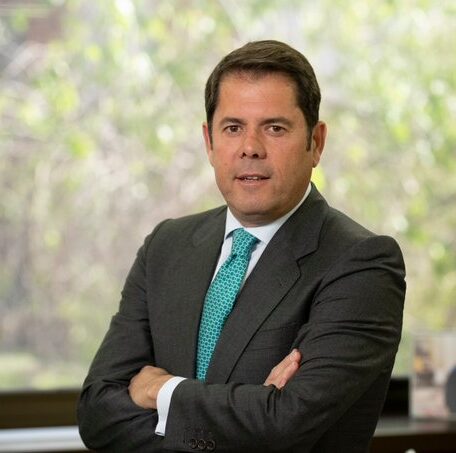‘Entrepreneurs are certain that IFMIF-DONES is key for the future of Granada’

Gerardo Cuerva, President of CEPYME, OnGranada Tech City, CGE and Cámara Granada
Gerardo Cuerva is President of the two main economic organisations in Granada: Confederation of Employers in Granada (CGE) and the Chamber of Commerce of Granada. Gerardo Cuerva is also President of the IT and biotechnological cluster OnTech Innovation, an initiative launched by the Confederation in 2013, which has become the largest digital economy organisation in Andalusia. Since 2019, Gerardo Cuerva is also President of the Spanish Confederation of Business Organisation (CEPYME).
– Recently, when talking about the future of Granada, it is impossible not to mention the IFMIF-DONES particle accelerator and its impact in the province’s economy. To which extent do you consider this a transformative project?
-This is the most ambitious project Granada has been involved in ever. For many years, public and private institutions have worked side by side to build a serious proposal that has received the approval of the European Union. This project has managed to get us all working together, and it has gained the support of the private sector and of all Spanish institutions, including the Spanish Government and the Regional Government of Andalusia, because we are aware of the revolutionary impact it will have in our economy.
IFMIF-DONES is not simply a key project for the future economy of Granada, but also for Andalusia and Spain. The particle accelerator will place us on the map of nuclear fusion and high-level scientific research. It will attract investment and talent related to R&D. Besides the number of direct job opportunities, IFMIF-DONES will be a turning point for our economic infrastructure. Entrepreneurs are certain that the accelerator is key for the future of Granada. This is why we have worked so hard to support this project from the beginning.
– Is it the boost the industry in Granada needs to grow and become a stronger player in the economic structure of the province?
-It is indeed. The accelerator is a unique opportunity for Granada, the final push to consolidate a knowledge-based industry. However, we must play our cards right. Although building this facility in Escúzar is a first step, probably the most important one, we need to continue working if we want Granada to become the global epicentre of top scientific research related to future materials, to engineering, to construction and to energy. This will only be possible if all projects in Andalusia and Spain related to the accelerator are developed in Granada. If we want a new economy based on IFMIF-DONES, the public administration must continue supporting Granada as the centre of fusion in Spain.
From there on, we need to continue working with ambition for Granada to become the capital city of fusion beyond the IFMIF-DONES project. We need to work hard to attract investors and international leading companies, to attract talent in scientific research and industrial development. We must look ahead, further from the decommissioning of the particle accelerator. Only this long-term view will allow us to transform our industry and economy.
– Besides placing Granada on the map of Big Science, IFMIF-DONES will reinforce the innovative ecosystem of the province and attract international talent and companies related to fusion technologies and energy. In the current crisis caused by the coronavirus pandemic, is this project needed more than ever?
-It is crucial for the economic reconstruction of Granada, Andalusia, and Spain. This is how it is understood by entrepreneurs and this is how it has been communicated to the Regional Government, the Ministry of Science, and the Spanish Government. We believe that the particle accelerator, with its potential for the economic development of Granada, must be a priority in the allocation of the Next Generation funds for the economic recovery. This was reported by the Confederation of Employers in Granada to the Spanish Confederation of Business Organisation, who has channelled the proposals on tractor macro projects. IFMIF-DONES is a necessary project that will multiply the resources obtained for its construction.
– The involvement of the private sector has been key to prepare Granada’s candidacy and convince the European authorities of the suitability of Escúzar for the construction of IFMIF-DONES. Do you think this is an example of what can be achieved with public and private cooperation and unity of action?
-Granada does not have a satisfactory record in terms of future project prospects, but this is different in the case of the particle accelerator. The design of this candidacy was done high-mindedness, in consensus and with no institution showing more importance than other. The greatest mistake by institutions, short-termism, has been left apart to work side by side in an ambitious project for the benefit of Granada, Andalusia, and Spain. The spirit of IFMIF-DONES, which has managed to build the candidacy for Granada and gain the support of the European Union, is the spirit we need to promote in the rest of the projects in this province.
I would like to acknowledge the work done by entities in Granada during the past years, before IFMIF-DONES was a known project. This candidacy would not have progressed without the efforts of the University of Granada, Diputación Provincial and the city councils involved. The Ministry of Science and Regional Government’s support have also been key in this ambitious project.
– What role will companies play in the accelerator project? Is there room for SMEs and companies from Granada and Andalucía in such a large project?
-As mentioned before, if Escúzar is confirmed as the site to build the particle accelerator, we will have to work to build a complete ecosystem of workers, auxiliary industry, companies, teaching and research institutions, and means of information related to IFMIF-DONES. And here is where SMEs play a crucial role. The particle accelerator will attract large industrial actors, but the project will present many opportunities at its different stages for smaller companies, for the IT sector (supercomputing or data management) and for other sectors. Granada has a strong IT sector with many SMEs that will grow stronger with the arrival of the particle accelerator.
– OnTech Innovation (OnGranada Tech City), of which you are President, is part of the IFMIF-DONES preparatory phase, the DONES-PreP project. Do you think this cluster is proof of Granada and Andalucía’s potential in the fields of ICT and R&D?
-Businesspeople in Granada are convinced that science, innovation, technology, and knowledge-based industry must be a pillar in Granada’s new economy. We were convinced when we launched the creation of OnGranada Tech City to support the growing ICT and Biotechnological sectors in 2013, and we still are, working at the forefront to bring IFMIF-DONES to Granada.
This Cluster has adapted throughout the years in accordance with the needs of our companies. We are now working for the entire region of Andalusia and focusing on the identification of funds and innovative projects for IT companies. Our aim is to increase their competitivity and to strengthen the IT Andalusian ecosystem.
– As President of CEPYME, you have often highlighted the importance of innovation not only for large enterprises but for the entire production framework regardless of the size. What do SMEs need to face innovation processes?
-They need more stimulus from the public administration. Innovation, digitalisation, and internationalization are the three greater challenges that SMEs face. As a result of their structure, SMEs have less options to innovate. For this reason, we ask the administration to help companies by removing the obstacles in their expansion. Only this way we will overcome innovation processes and improve our competitivity successfully.

